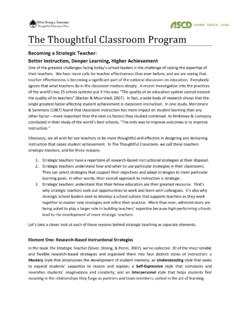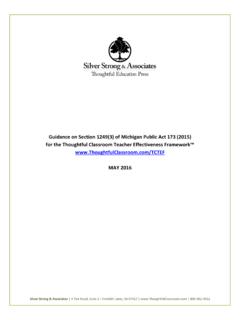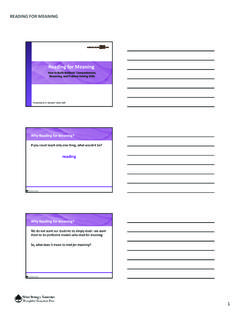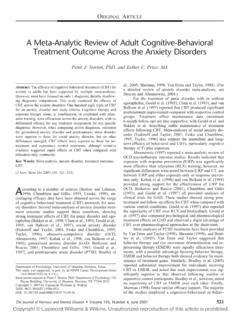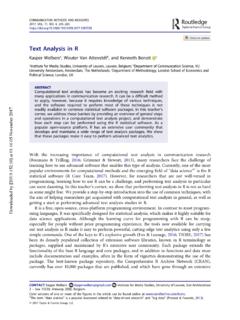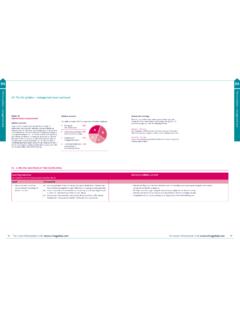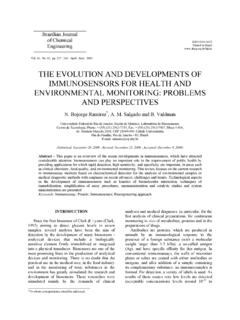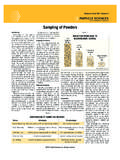Transcription of Styles and Strategies for Helping Struggling …
1 3 SectionStyles and Strategies for Helping Struggling Learners Overcome Common Learning DifficultiesThe purpose of this section is to provide specific, style-based help and information to classroom teachers and teams of special education teachers as they to develop meaningful plans for hard-to-reach students, underachievers, and students whose academic performance falls below the teacher s, school s, or state s curriculum this section, we discuss the most common learning problems that students in each style may experi-ence, along with the solutions that work best for addressing these problems. The problems and solutions discussed fall into the following categories: attention reading writing mathematics science and social studies homework 3 SectionStyles and Strategies for Helping Struggling Learners Overcome Common Learning DifficultiesThe purpose of this section is to provide specific, style-based help and information to classroom teachers and teams of special education teachers as they to develop meaningful plans for hard-to-reach students, underachievers, and students whose academic performance falls below the teacher s, school s, or state s curriculum this section, we discuss the most common learning problems that students in each style may experi-ence, along with the solutions that work best for addressing these problems.
2 The problems and solutions discussed fall into the following categories: attention reading writing mathematics science and social studies homework 36 Learning Styles , RTI, and the Struggling Student: A Thoughtful Approach to Designing More Powerful InterventionsHelping Mastery Students Overcome Common Learning DifficultiesWhenever learning becomes abstract or passive, whenever key skills are not explicitly demonstrated and practiced, whenever the Mastery student feels unable to display a high degree of competence on work assigned, whenever the work of the classroom becomes isolated from the physical world, practical applications, real-world relevance, or clear expectations, some Mastery learners motivation will lag. As they become less motivated or more uncertain, these learners are likely to: Withdraw from classroom participation to conceal their perceived lack of competence.
3 Ask for increasingly explicit instruction on what they have to do to avoid error. Produce minimal work just enough to get by because they no longer feel that they can be successful or that the content of the curriculum will be useful to them in the real PrinciplesIn general, Mastery learners want to work and do well in school. When they withdraw from learning, many of their problems can be addressed cognitively according to four basic principles:1. clear, clear, clearMastery students are motivated by clarity, competence, and success. Motivation starts with clearexpectations. Set explicit and measurable goals for both academic achievement and better the Mastery student knows the criteria for evaluating the performance, the more hewill work to meet model, model, modelThe skills necessary for success hold whether the skill is fairly straightforward ( , studying for aspelling test) or if it s a more abstract and complex skill, such as making inferences, establishing athesis for an essay, or developing a plan for solving a mathematics problem.
4 The more explicitlythe teacher models the skill, the stronger Mastery students will practice, practice, practiceMastery students need lots of practice on key skills and central concepts. It is not necessary toreduce the thinking, reading, writing, or problem solving in their work; it is only necessary toprovide more practice and better feedback on their organize, organize, organizeWhen it comes to learning complex content, Mastery students need organizational tools. They frequently fool us because they are so good at following directions, but their tendency to focus on details makes it difficult for them to see and use the higher-level concepts necessary to under-stand content like science and social studies. The use of visual organizers, as well as effective modeling and practice of study skills, can provide an effective boost to Mastery the following pages you will find the most common difficulties faced by Mastery A S T E R Y37 Helping Mastery Learners with AttentionAs long as learning is focused on demonstration and frequent practice, Mastery learners display a high degree of attention and are able to focus for long periods on the task at hand.
5 Under these conditions, their ability to focus can be extraordinary. However, the longer they are asked to be passive, the more abstract and conceptual the content, the more disconnected instruction is from something they can do, the greater the difficulty Mastery learners will have sustaining Solutions:Begin lessons by presenting both the long-term goal (write a paper that evaluates Columbus s role as an explorer and an administrator of the new world) and the short-term objective (examine the first draft for how well it uses evidence and make plans for revision).Strengthen the connection of tasks assigned to applications in the real world, especially to input in short bursts with frequent stopping points for practice. Use visual organizers to provide an overview of the long-term task. Find ways to measure progress and record the results visually with the learner.
6 What to Avoid:Reducing the complexity of the task (if Mastery learners perceive they are doing lesser work than their peers, their motivation declines). Helping Mastery Learners with ReadingReading is not a preferred mode of learning for many Mastery students. Shorter readings, more concrete content, and questions that focus on finding and examining details tend to bring out the best performance in Mastery readers. In addition, they display a strong preference for nonfiction over stories or poetry. Some Mastery learners display significant difficulties with readings and tasks requiring inference. The sensing mode of perception focuses their attention on the details, and they frequently overlook both main ideas and text structure when reading nonfiction. In reading literature, they often encounter difficulties discerning and answering questions about a story s themes, a character s motivation, or an author s techniques.
7 In extreme cases, their tendency to separate information into small bits may lead them to isolate one word from another in oral reading. This can lead to an incorrect diagnosis that they have phonics deficiencies, when the real problem lies with the difficulties they experience using inference to comprehend the connections between words while they are Solutions:Explicitly model and regularly practice the five main types of inferences separately (inference of missing detail, main idea, character motivation, author s techniques and purpose, theme).Demonstrate how an understanding of a text s structure (topic/subtopic, procedural, sequence, cause and effect, compare and contrast, problem-solution) can be used to increase compre-hension and take effective the use of nonfiction texts in the early phases of instruction. Deliver direct instruction in how to interpret complex higher-order thinking tasks and questions in reading, and how to use tasks and questions to develop a reading A S T E R Y38 Learning Styles , RTI, and the Struggling Student: A Thoughtful Approach to Designing More Powerful InterventionsWhat to Avoid:Providing students with worksheets.
8 Providing students with visual organizers: teach them to design their own. Helping Mastery Learners with WritingMastery students learn quickly to write brief, well-organized pieces that stay close to the directions or task descriptions. In the early years of schooling, they may display a flair for spelling, punctuation, and capi-talization. Their handwriting is frequently neat though they may display a preference for printing over cursive and, in general, they do better with nonfiction writing and reports than they do with more creative or personal forms of writing or writing that asks for opinions or evaluations. Some Mastery learners have a tendency to write brief, almost telegraphic prose, keeping to the bare bones of the topic with little attempt to develop or elaborate their ideas in depth. As they move upwards through the grades and the demand for longer and more analytic writing increases, some Mastery students may stagnate as writers, becoming arrested at paragraph-length writings.
9 No matter what the assignment, they do little more than summarize or paraphrase, ignoring requests for analysis of cause and effect, comparison, thesis, or in-terpretation. Finally, as they advance into the upper grades where success in spelling, punctuation, and grammar becomes less a matter of drill and practice and where there is a greater focus on the ability to discuss complex patterns and apply reason using abstract rules, many Mastery learners seem to lose the control and proficiency of written Solutions:Begin writing instruction in early phases by reading and writing how-to pieces ( , How to build a kite, How to fry an egg ).Use your own writing; explicitly model how you locate places where more information, evi- dence, or detail are the idea of text structure: topic; subtopic; argument (claim, evidence, counterargument, response); sequence (first, next, then); or comparison (description, similarity, difference, signifi-cance) to help students develop plans for writing pieces, not paragraphs ( , letter, editorial, book review, advice column).
10 Find real audiences and mentors from outside the classroom to provide concrete feedback to the writer, not on conventions (spelling, punctuation, etc.), but on where the writing becomes confusing or needs more to Avoid:Reducing the length, complexity, or thinking involved. M A S T E R Y39 Helping Mastery Learners with MathematicsMany Mastery learners display a high level of proficiency for mathematical computation, particularly when the steps in a procedure have been clearly demonstrated and frequently practiced. But when the focus shifts to problem solving, explaining mathematical concepts, or applying and demonstrating mathematical reasoning, some Mastery learners flounder. Word problems may be a particular problem, especially in multistep problems or where the correct operation to apply is not obvious. In the upper grades, as the number of mathematical procedures accumulate and statistical, algebraic, and geo-metrical reasoning play a greater and greater role, math becomes more challenging for some Mastery learners who focus more on details.
